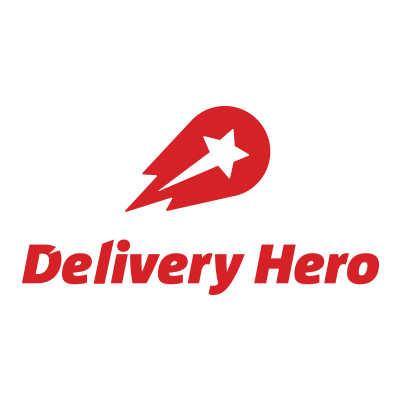
Every CEO has a personal and unique approach to their business that inspires innovation, shapes work culture and sets their company apart in bold and unconventional ways.
In a recent article for Forbes, Carl Rodrigues, SOTI’s President and CEO, discusses how being a hands-on CEO is a key differentiator that helps SOTI continue its 25+ year history of building high quality software, attracting the best talent and delighting customers and partners worldwide.
Sparks, Speed And Satisfaction: The Difference A Hands-On CEO Can Make
By: Carl Rodrigues, President and CEO, SOTI
Disclaimer: This article originally appeared in Forbes in April 2020
As a CEO, my most important responsibility is to know myself.
I'm far from perfectly self-aware (who is?), but there are a few things I know for certain. I know that I'm a software geek at heart and that I am deeply interested in detail at a level that most people just don't comprehend.
I am a hands-on CEO because I'm obsessed with all aspects of our business — especially with our products — and care about the nitty-gritty details that make the difference between good and great. I function best when I'm immersed in the products that I help design and surrounded by people with the talent and brains to challenge me.
That's what being a hands-on CEO does for me — and it's what it could do for you as well. But what's far more important is the difference it can make in what's delivered to customers. When it's done right, being hands-on can deliver sparks, speed and satisfaction.
It's practically a cliché in the tech business for the CEO to sit side by side with the team — "in the pit," so to speak. But that's where the action is. Personally, it's why I do this.
Innovative product ideas bubble up, get batted around and roar into production. Team-building happens daily organically. Pressure and being a little cramped are the factors that crush ordinary carbon into shining diamonds.
I've found that keeping those sparks flying isn't nearly as easy as it was back when we were just a few engineers in a tiny office. Our rapid growth has spread us out over different buildings in Canada. In no time, we were up to over 1,200 people scattered all over the world, and there's no way to get everyone in the same room every day.
As your company grows, you'll have to fight complacency harder than you might imagine. The day-to-day can consume you if you let it. Instead of being distracted by the "urgent but not important" problems people choose to bring to you, being hands-on forces you to focus on the things that really matter. That focus and prioritization is what enables speed. Being in the pit can provide the right vantage point to spot problems early on and get the team to course-correct before a small problem has a chance to grow. I refer to it as "seeing the smoke signals."
Being hands-on with your customers is also important — and for the same reasons. For example, I meet with a few key customers globally every quarter, and not just CEO to CEO. I get right in the middle of meetings with their tech people. I'm much more useful that way than as some figurehead dropping by for a ceremonial visit. What can be learned in those sessions is invaluable. Decisions can be made based on what customers need rather than on what analysts or the media say.
The final major benefit for being so hands-on is satisfaction. The technology business attracts problem-solvers, and a strong team wants to be sure it's working hard on the right problems. I can imagine it could be frustrating working for a CEO who drops in occasionally from out of orbit and isn't familiar with the technology and its strengths or limits and then redirects the team in some random direction. Changing direction should rarely be a surprise. Rather, the team should know it's the culmination of dozens of hallway conversations, healthy debates and thought.
The same is true with customers. There should be a straight line between the feedback they've shared in face-to-face meetings and important product innovations.
How to be an effective hands-on CEO
1. Only be hands-on if it is your natural state of being. It's not something you can fake. If not you, find people on your management team who love being hands-on, and have them do it. Different CEOs have different strengths, so only do it if it's right for you.
2. Don't let your title go to your head. If you hire great people, you will soon routinely deal with people who are smarter than you. Having an opinion is what makes our products better, and I will always have an opinion. But that doesn't mean I have to win every argument.
3. Don't do things by decree, and never let being hands-on turn into a dictatorship. The only win that counts in a passionate argument is when the best idea wins — and if you're doing it right, that idea won't always be yours.
4. Thinking is not overrated. Remember to set aside time to go off on your own and think about and process what you've heard. If you're not bringing experience and perspective to the issues facing the company, you're not doing your job as a hands-on CEO. Know when to be in the thick of things and when you need to think.
5. Hire people with your values. One of the real strengths of our company is that politicians and charlatans can't survive here — especially at the senior leadership level. Nobody will tolerate it, and as a hands-on CEO, I've learned to hire people with the right attitudes.
6. Be the hardest-working person in your company. Recently, we had a long weekend in Canada. Our colleagues in India had scheduled a call for Monday at 8:30 a.m. with our headquarters without realizing that Monday was a holiday. I was the only person from our office who dialed in for the call. I wasn't doing it to make a point, but word quickly got around. Your sweat and work ethic will rub off.
Sparks, speed and satisfaction. That's the difference a hands-on CEO can make.



